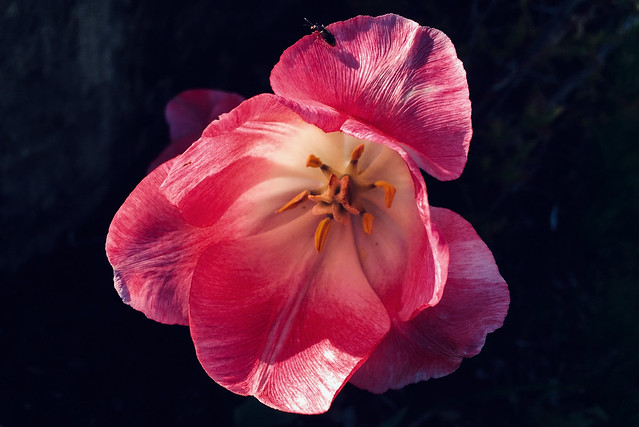|

Open to the Light
* * *
You have pronounced the name; go, seek the thing named.
The moon is in the sky, not in the water.
*Rumi. A Rumi Anthology. Trans. Reynold A. Nicholson.
* * *
A monk was very hungry. He hurriedly dipped soup from a pot and started swallowing it, not checking if it was hot. Suddenly, he leaped up and began yelling and running around. Another monk asked him, "Why are you running, brother?" The first monk exclaimed, "Hurry! Get some water and throw it on my head. A fire is aflame in my stomach!"
* * *
The workings of the mind never meet the needs of the innermost Self, as water thrown on the monk's head would not still the fire in his tummy. The forms of religion and spiritual paths will never satisfy the heart's yearning for intangible Spirit. Water reflections do not give us intimacy with the Moon reflected upon the water.
We can attach to substitutes for Spirit, and they may bring a sense of temporary relief. These include religiousness, meditation, busyness, sex, drugs, community involvement, relationships, social action, recreation, etc. Yet, they inevitably lead to frustration if not utilized as a means to Spirit rather than an end, for the need is deeper, out of reach of the substitute.
Attaching to signs of Ineffability is like drinking salt water to quench thirst, leading to increased thirst. Increased thirst is a sign we are seeking spiritual fulfillment through means that cannot meet that need. Hence, increased thirst can assist us in waking up spiritually to wise means to satisfy our thirst for living Water.
* * *
The chief obstacle to fulfilling the inner urge is not what we call bad but good. For example, going to a church worship meeting is a great place to hide from God, and attending a Buddhist sangha can be a safe hideout from waking up to Buddha Nature. Meditation groups can be superb places to engage in spiritual bypass rather than face our neurosis with its consequent emotional and relationship suffering: we use the means to go straight to bliss, which, we discover, does not work. So-called religious and spiritual venues are the best hideouts because they appear to be places where one would least likely hide.
Our hope for getting honest with the Work is waking up to using good means to hide. There is no way to bypass looking at ourselves honestly. Fulfillment is on the other side of this self-honesty. Our longing cannot find its Source apart from working with our suffering.
* * *
Longing for Spirit arises from Spirit, so the need is of Spirit, not the lower self. The heart, or spirit-within, is the meeting point with Spirit. Therefore, connection with Spirit is the only compatible answer to the urge.
* * *
Our response to the desire for Spirit can be using form to bridge the gap between form and the Formless, uniting matter with the Immaterial. Yet, if we stop with form, it becomes a hindrance, rather than a help, to Union with Grace and, consequently, the destination of the longing. That is, within the yearning is the wisdom and direction of its fulfillment. The wisdom and direction cannot be imposed from without.
* * *
In all things of the outer affairs of life, even in everyday mundane matters, look to kiss the Face behind the masks. Only the Face satisfies, finally, the heart-longing.
A group member complained to the Sage, "Many here are attached to spiritual practice, and you seem not to wish to intervene, even though you teach such attachment to forms is not the Way." "Correct," replied the Sage, "but attachment is the way to the Way, for attachment to forms prepares one for non-attachment to forms. Hence, it is good, for a time, that they are inordinately attached to their spiritual practices. When ripe enough, the fruit will fall from the tree."
*Brian K. Wilcox. "Meetings with an Anonymous Sage."
* * *
*(C) Brian K. Wilcox, 2023. Permission given to use photographs and writings with credit given to copyright owner.
*Brian's book is An Ache for Union: Poems on Oneness with God through Love. The book is a collection of poems Brian wrote based on wisdom traditions, predominantly Christian, Buddhist, and Sufi, with extensive notes on the poetry's teachings and imagery.
|





